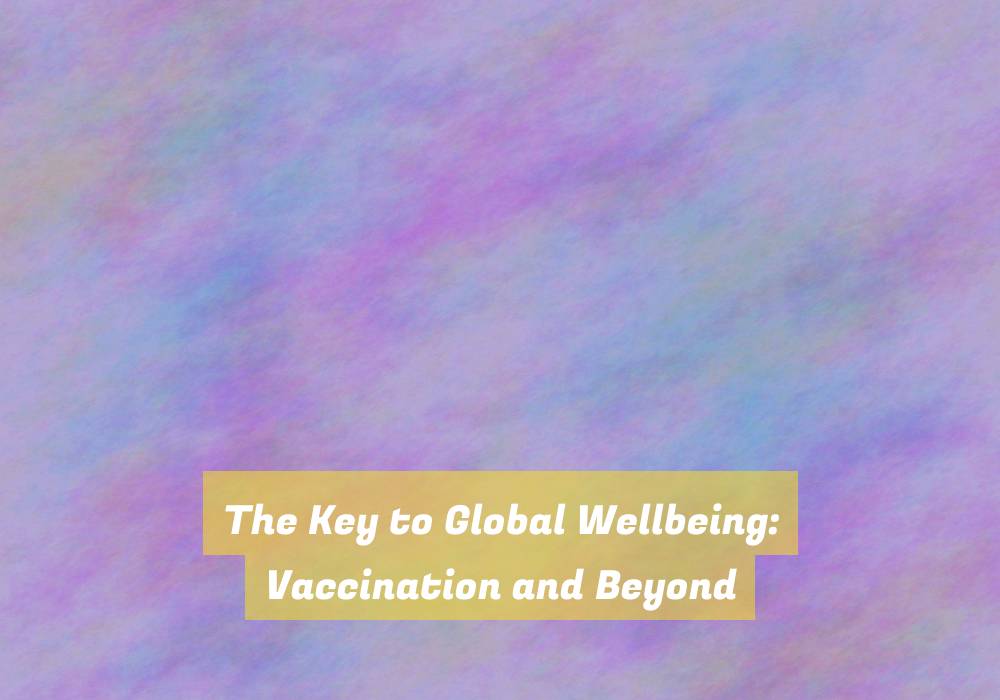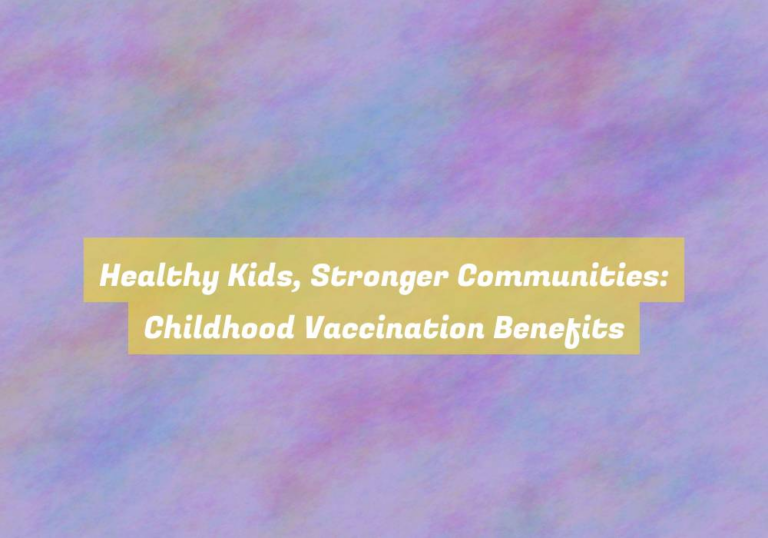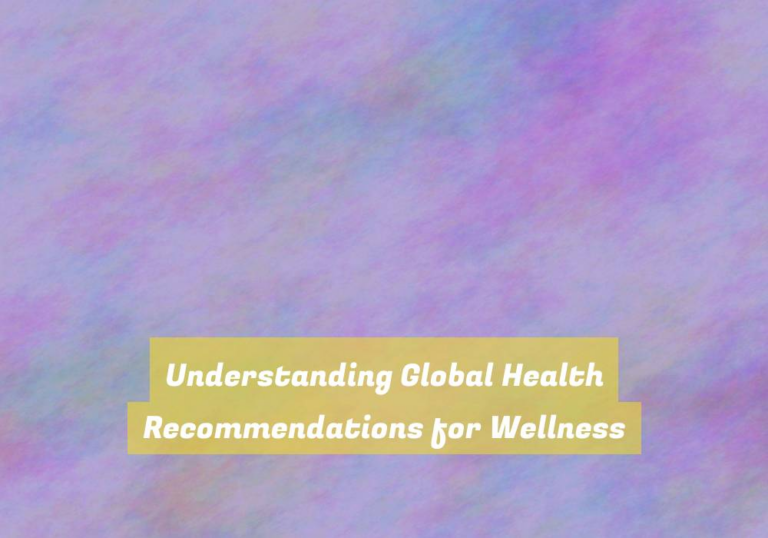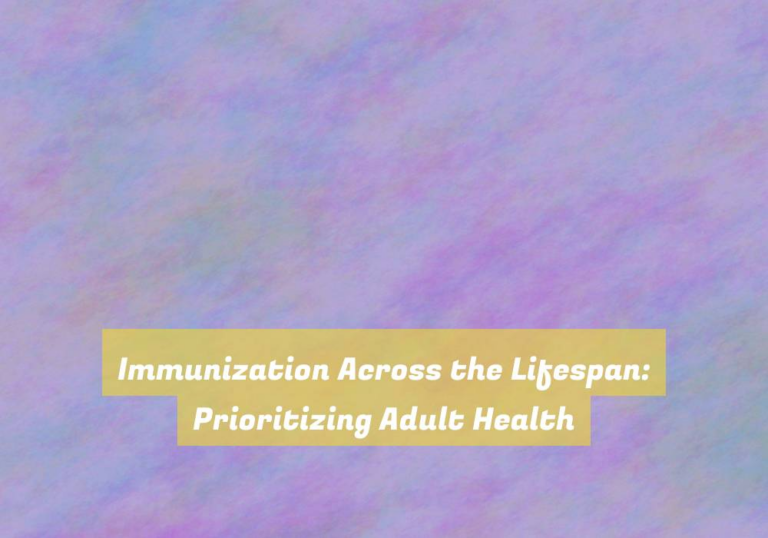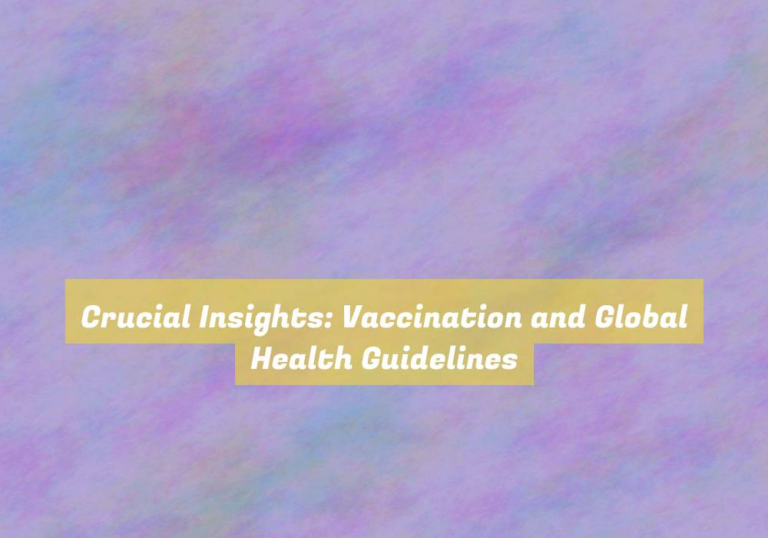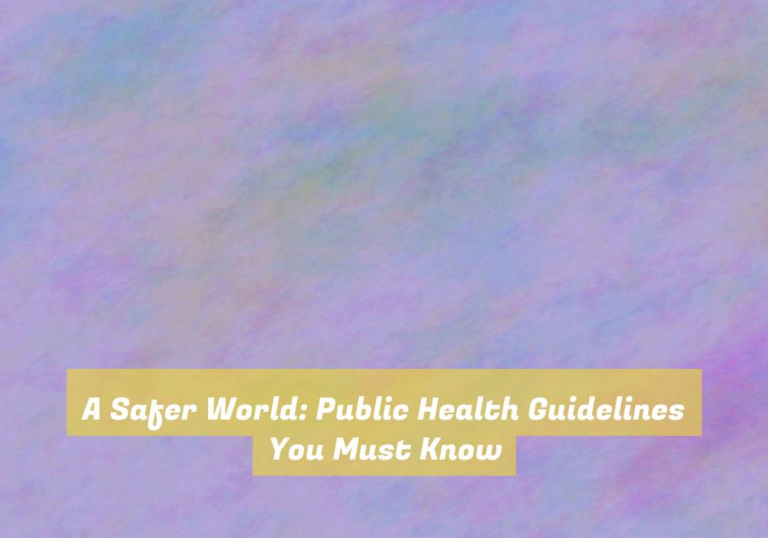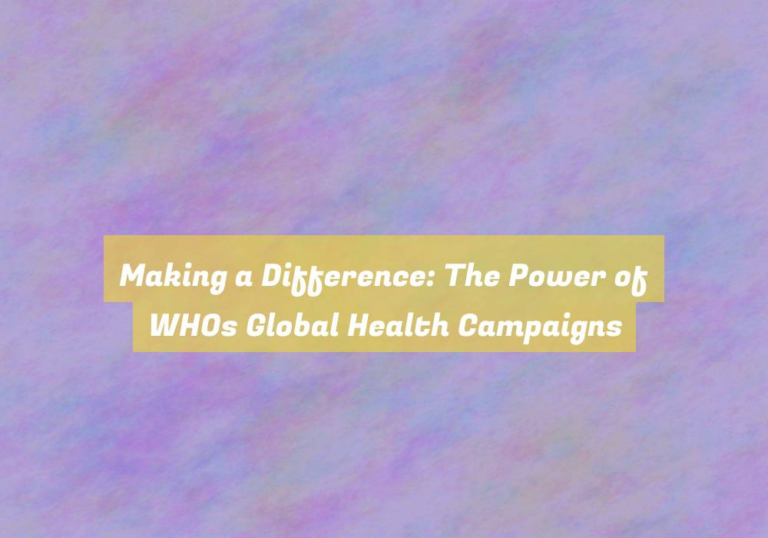The Key to Global Wellbeing: Vaccination and Beyond
Imagine a world where the health of every individual is safeguarded, where preventable diseases are a thing of the past, and where everyone has access to quality healthcare. This vision of global wellbeing is within reach, and vaccination plays a crucial role in making it a reality.
However, the key to achieving true global wellbeing extends beyond vaccination alone. It involves addressing social inequalities, promoting mental health, and ensuring healthcare access for all.
As we embark on this discussion, we will explore the multifaceted approach needed to achieve global wellbeing and the interconnectedness of various factors in shaping a healthier world for all.
The Critical Role of Vaccination
Understanding the critical role of vaccination is essential for safeguarding public health and preventing the spread of infectious diseases. Vaccines work by stimulating the immune system to produce antibodies, preparing it to fight off specific diseases. By receiving vaccinations, you not only protect yourself from potentially life-threatening illnesses but also contribute to the larger goal of community immunity. This means that when a large portion of the population is vaccinated, the spread of diseases is drastically reduced, safeguarding those who canG??t be vaccinated, such as individuals with weakened immune systems or allergies.
Vaccination has played a pivotal role in eradicating diseases like smallpox and significantly reducing the prevalence of others, such as polio and measles. Furthermore, it has been instrumental in preventing outbreaks of infectious diseases, thereby saving countless lives. By actively participating in vaccination efforts, you arenG??t only taking responsibility for your own health but also fulfilling a crucial societal duty by helping to protect vulnerable populations and ultimately contributing to the global wellbeing.
Addressing Social Inequalities
To effectively address social inequalities, itG??s vital to recognize the impact of disparities on access to healthcare and vaccination initiatives. Social inequalities, such as income disparities, racial discrimination, and limited access to education, can significantly hinder the ability of certain communities to access essential healthcare services, including vaccinations. These disparities often result in unequal vaccination rates and health outcomes, further perpetuating the cycle of inequality.
Additionally, marginalized communities may face barriers such as lack of transportation, language barriers, and inadequate healthcare infrastructure, which can further impede their access to vaccinations.
Addressing social inequalities requires a multifaceted approach that acknowledges and actively works to dismantle systemic barriers. This includes implementing targeted outreach programs, improving healthcare infrastructure in underserved areas, and providing education and resources to empower communities. Furthermore, addressing social inequalities also involves actively engaging with community leaders and stakeholders to ensure that vaccination initiatives are inclusive and accessible to all.
Promoting Mental Health
Improving mental health is essential for overall wellbeing and requires a holistic approach that encompasses both individual and societal factors. Taking care of your mental health is just as important as taking care of your physical health. ItG??s about finding a balance in life, managing stress, and engaging in activities that bring you joy.
But promoting mental health goes beyond individual efforts. It also involves creating supportive and inclusive environments within communities and societies. You can promote mental health by fostering strong social connections, seeking help when needed, and practicing self-care. Building a strong support system and being there for others can positively impact your mental wellbeing.
Additionally, advocating for mental health awareness and access to mental health services can contribute to creating a more supportive societal environment. ItG??s important to recognize that mental health is a universal concern and that promoting mental wellbeing is a shared responsibility. By taking proactive steps, both individually and collectively, we can work towards creating a world where mental health is prioritized and supported.
Ensuring Healthcare Access for All
Promoting mental health involves recognizing the importance of ensuring healthcare access for all individuals, regardless of their circumstances or background. ItG??s crucial to acknowledge that access to healthcare goes beyond just physical ailments.
Mental health services, preventive care, and access to medications are all vital components of a comprehensive healthcare system. Ensuring healthcare access for all means addressing barriers such as affordability, transportation, language, and cultural differences.
It requires proactive measures to reach marginalized communities and underserved populations, providing them with the necessary resources to seek and receive proper care. Beyond physical access, healthcare systems also need to prioritize inclusivity and sensitivity to diverse needs.
This involves training healthcare providers to understand and respect cultural nuances, as well as offering mental health support tailored to specific communities. By guaranteeing healthcare access for all, we not only improve individual wellbeing but also contribute to the overall health and stability of communities and societies.
ItG??s a fundamental step towards creating a more equitable and healthier world for everyone.
Conclusion
In conclusion, vaccination plays a crucial role in global wellbeing, but itG??s not the only factor. Addressing social inequalities, promoting mental health, and ensuring healthcare access for all are equally important.
By working together to address these issues, we can create a healthier and more equitable world for everyone. So, keep advocating for vaccination and beyond to make a positive impact on global wellbeing.

